Antifreeze to Winterize Your Boat: What & How Much
One crucial process to properly winterize your boat before the colder months arrive is to use antifreeze to protect the engine and plumbing systems from potential damage. But what kind of antifreeze should you use, and how much do you need? Let's find out in this article.
When choosing an antifreeze for your boat, look for propylene glycol antifreeze, which is non-toxic and safe for use in potable water systems. Once you've chosen the correct antifreeze, the general rule of thumb is to add one gallon of antifreeze for every 50 gallons of coolant capacity.
However, the type and amount of antifreeze you may use depends on the climate of the area where you are located. If you live in a location with freezing temperatures, you may need to use antifreeze with a much lower freeze point. Let's see what other factors affect the type and amount of antifreeze you'll need to winterize your boat.
Summary
- Propylene glycol antifreeze is safer and more environmentally friendly than ethylene glycol antifreeze, which is toxic and harmful to pets and wildlife.
- The purpose of antifreeze in a boat's engine is to prevent it from freezing, protect its components, regulate its temperature, and prevent corrosion.
- Boats with freshwater cooling or air conditioning systems require more antifreeze (at least 3–4 gallons) than those with raw water cooling systems.
- If your boat has not been properly maintained or winterized in the past, it may require more antifreeze to fully protect it against freezing temperatures.
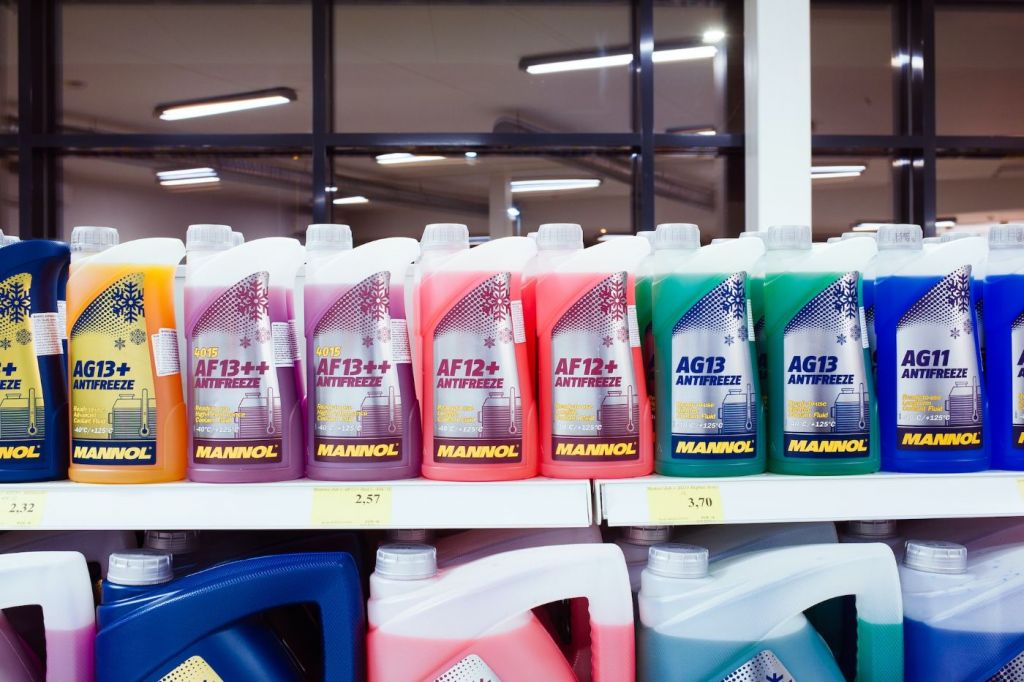
On this page:
What Antifreeze To Use
Below is a table comparing the pros and cons of different types of antifreeze:
| Propylene Glycol | Ethylene Glycol | RV Antifreeze | |
|---|---|---|---|
| Pros | Non-toxic, odorless, tasteless, biodegradable, less corrosive, higher boiling point | More efficient at preventing freezing | Non-toxic, safe for potable water systems, easy to use, affordable |
| Cons | Not as efficient at preventing freezing | More toxic, harmful to pets and wildlife, difficult to dispose of | Not as commonly used, may not provide as much protection in extreme temperatures |
Propylene glycol antifreeze is commonly used in boats
Propylene glycol antifreeze is a non-toxic antifreeze that is commonly used in boats. It is a safer alternative to ethylene glycol antifreeze, which is toxic and can be harmful to people and pets. Propylene glycol antifreeze is also less damaging to the environment and is biodegradable.
One of the benefits of propylene glycol antifreeze is that it has a higher boiling point than water, which means that it can help prevent your engine from overheating. It also has a lower freezing point than water, which means that it can help protect your engine from freezing during the winter months.
Ethylene glycol antifreeze is not recommended for boats
Ethylene glycol antifreeze is a type of automotive antifreeze that is not recommended for use in boats. This type of antifreeze is toxic and can be harmful to people and pets if ingested. It is also harmful to the environment and can cause damage to marine life if it leaks into the water.
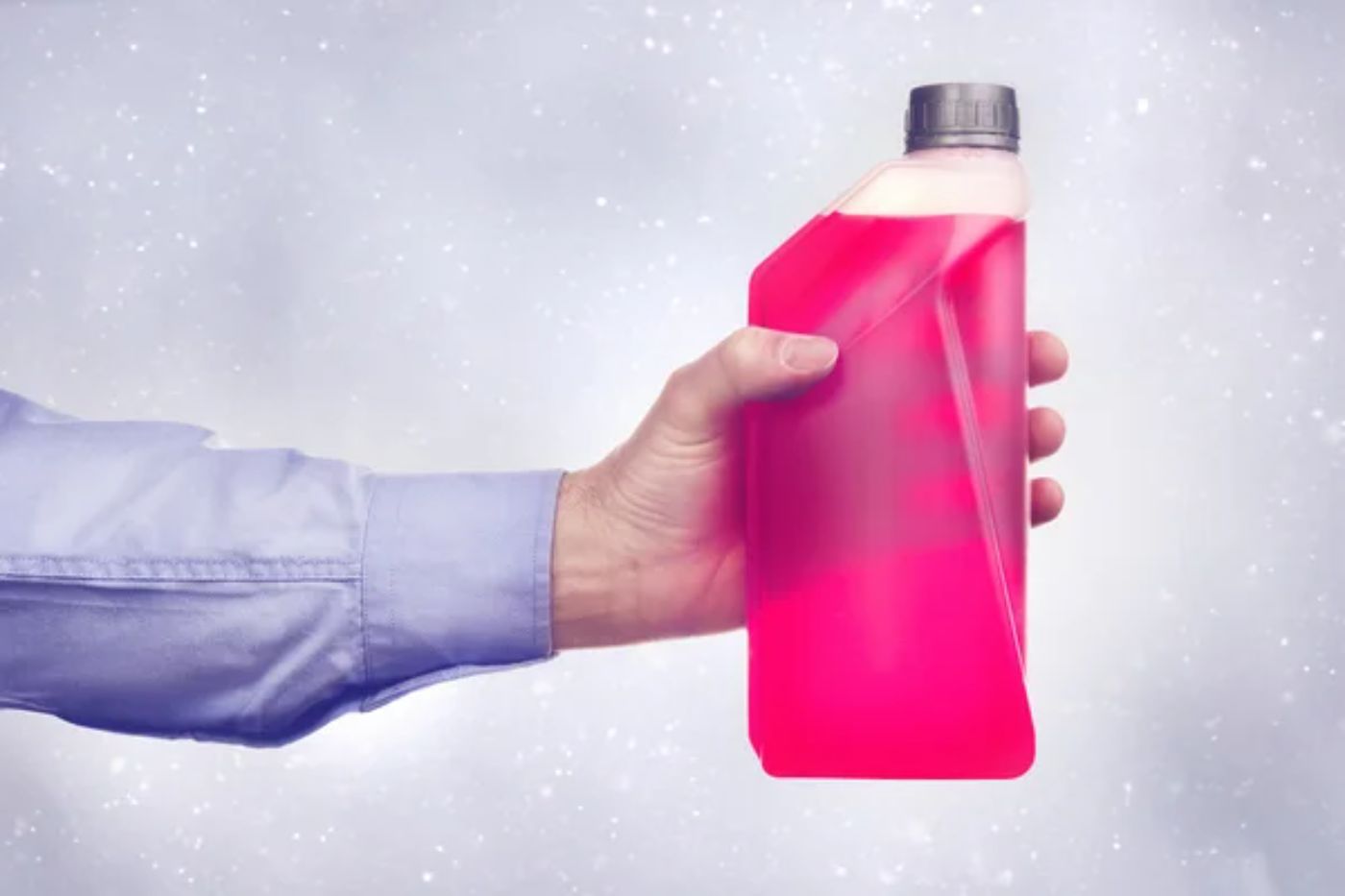
While ethylene glycol antifreeze is not recommended for use in boats, it is important to note that it is still commonly used in automotive applications. If you are using ethylene glycol antifreeze in your car, be sure to dispose of it properly and never pour it into the water.
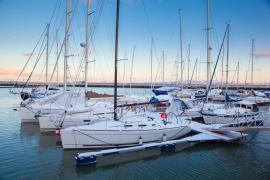
The Difference Between Marine vs. Auto Antifreeze
RV antifreeze can also be used in boats
RV antifreeze, also known as pink antifreeze, is a non-toxic antifreeze that is commonly used in boats. It is designed to protect your boat's water system from freezing during the winter months. RV antifreeze is safe for use in potable water systems and is tasteless and odorless.
One of the benefits of RV antifreeze is that it is easy to use. Simply pour the antifreeze into your boat's water system and let it circulate through the system. RV antifreeze is also affordable and readily available at most marine supply stores.
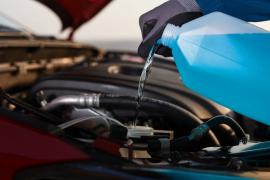
Can You Use RV Antifreeze to Winterize a Boat?
How Much Antifreeze To Use
Using too little antifreeze can leave your boat vulnerable to freezing temperatures while using too much can be wasteful and expensive. So, how much antifreeze should you use to winterize your boat?
A good rule of thumb is to add one gallon of antifreeze for every 50 gallons of coolant capacity. This means that if your boat's engine has a coolant capacity of 10 gallons, you would need to add two and a half gallons of antifreeze.
Boat antifreeze is specifically designed for marine use and can provide better freeze protection than other types of antifreeze. Be sure to check the freezing point and freeze protection of the antifreeze you are using to ensure that it will provide adequate protection for your boat.
| Antifreeze Type | Freeze Point (°F) | Freeze Protection |
|---|---|---|
| Boat antifreeze | -50 | Provides better freeze protection than other types of antifreeze |
| Automotive antifreeze | -34 | Protects against freezing in most areas of the US |
| RV antifreeze | -50 | Provides freeze protection for RVs and other recreational vehicles |
| Industrial antifreeze | -50 | Designed for use in industrial applications and can provide excellent freeze protection |
| Propylene glycol | -50 | A non-toxic antifreeze that is often used in food processing and other applications where toxicity is a concern |
If you are unsure about how much antifreeze to use, you could always consult your boat's owner manual or contact a professional for advice. It's always better to err on the side of caution and use a little more antifreeze than necessary to ensure that your boat is properly protected during the winter months.
The Importance of Antifreeze
Antifreeze, also known as engine coolant, is a liquid that is added to your boat's engine to protect it from freezing temperatures during winter. In this section, we will discuss the purpose of antifreeze, the different types available, and how it protects your boat against freezing temperatures.
Purpose of antifreeze in your boat's engine
Here are the main purposes of antifreeze in a boat's engine:
-
It prevents freezing: Antifreeze lowers the freezing point of the water in the engine's cooling system, preventing it from freezing and expanding, which can cause damage to the engine components.
-
It protects the engine components: By preventing freezing, antifreeze protects the engine components such as the block, cylinder heads, and water pump from damage.
-
It regulates the engine temperature: Antifreeze helps to regulate the temperature of the engine, preventing it from overheating and potentially causing damage.
-
It lubricates the water pump: Antifreeze contains lubricants that help to keep the water pump running smoothly.
-
It prevents corrosion: Antifreeze contains additives that help to prevent corrosion and rust from forming inside the engine's cooling system.
How antifreeze protects your boat
Antifreeze is typically added to the engine's cooling system, which circulates through the engine block and absorbs heat from the engine. As the antifreeze solution absorbs heat, it also transfers that heat to the radiator, where it is dissipated into the air.
During the winter months, when temperatures drop below freezing, any water left in the cooling system can freeze and expand, potentially causing damage to the engine block and other components. It's therefore not your engine that freezes, but the water that is in it.
By adding antifreeze to the system, the freezing point of the coolant is lowered, preventing it from solidifying and causing damage.
Not all antifreeze is created equal. Different types of antifreeze are designed for different types of engines and cooling systems. Always consult your owner's manual or a professional mechanic to ensure you are using the right type of antifreeze for your boat.
Additionally, you should properly dilute the antifreeze with water according to the manufacturer's instructions, as using too little or too much antifreeze can also cause damage to your engine.
If you're not convinced about using antifreeze, you can read this part of an article on how to winterize a boat without an antifreeze.

Factors That Affect The Amount Of Antifreeze
Several factors can affect the amount of antifreeze needed to winterize your boat, such as:
The size of your boat
The table below shows how boat size and engine size impact the amount of antifreeze needed:
| Boat Size | Engine Type | Estimated Amount of Antifreeze Required |
|---|---|---|
| Small (less than 20 ft) | Up to 50 horsepower | 1-3 gallons |
| Medium (20-30 ft) | 50-200 horsepower | 5-10 gallons |
| Large (30 ft or more) | 200-500 horsepower | 15-25 gallons |
| Extra Large (40 ft or more) | 500+ horsepower | 25+ gallons |
The larger the boat, the more antifreeze will be required to winterize it. This is because they have more water systems and components that need to be protected from freezing temperatures during the winter months, including the engine cooling system, freshwater system, and wastewater system.
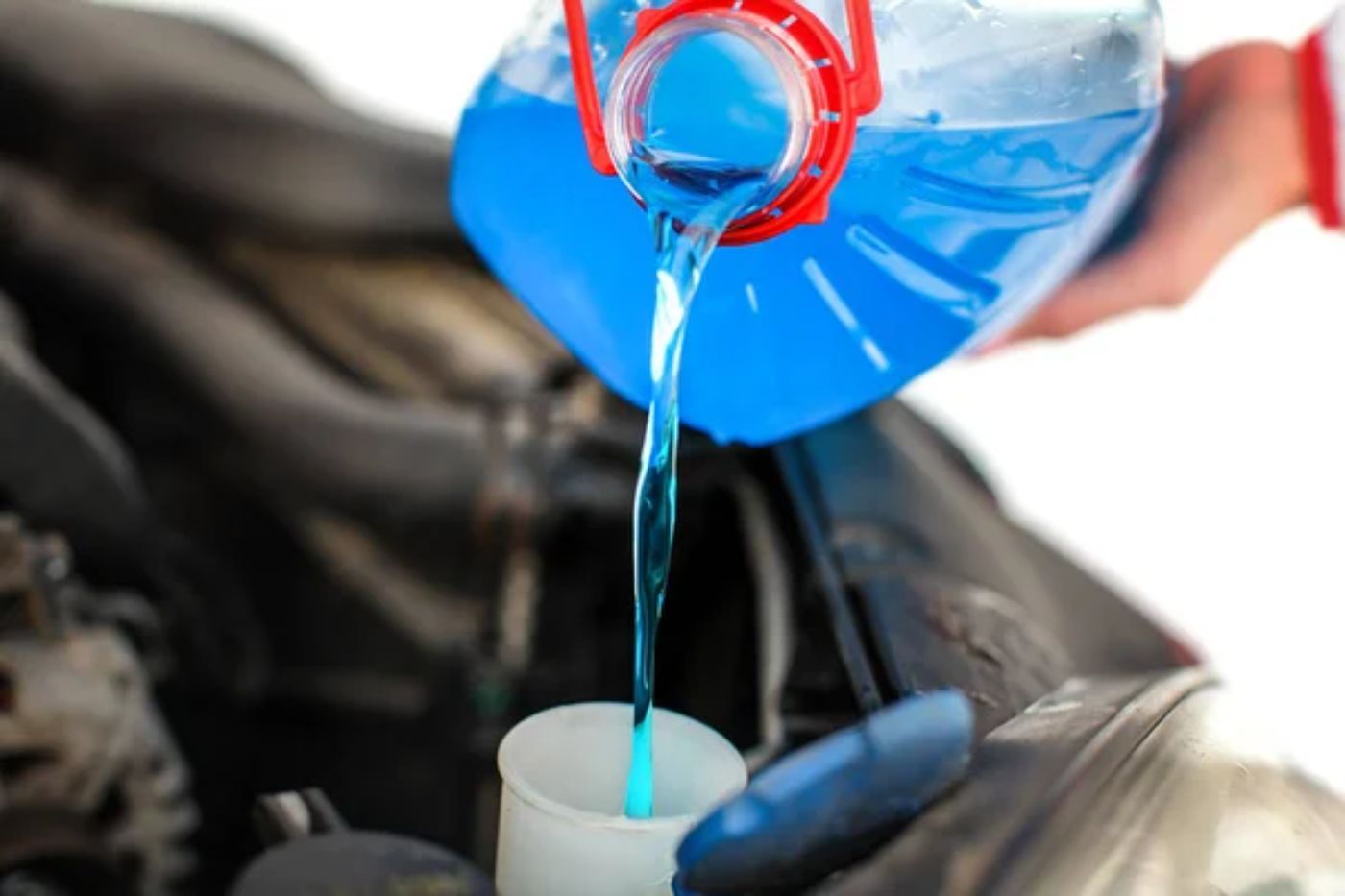
Larger engines will also require more antifreeze to properly winterize them. They have more coolant capacity and a greater surface area and volume that needs to be protected from the cold.
The type and number of water systems in your boat
The table below shows how the amount and type of water system in your boat impacts the amount of antifreeze needed:
| Water System Type | Number of Systems | Estimated Amount of Antifreeze Needed |
|---|---|---|
| Raw water cooling | 1 | 1-2 gallons |
| Fresh water cooling | 1 | 3-4 gallons |
| Fresh water cooling | 2 | 5-6 gallons |
| Air conditioning | 1 | 1-2 gallons |
| Air conditioning | 2 | 3-4 gallons |
Boats with raw water cooling systems typically have smaller water systems and may only require 1-2 gallons of antifreeze. On the other hand, boats with freshwater cooling systems or air conditioning systems may have larger water systems and require 3-6 gallons of antifreeze.
In addition, if a boat has multiple water systems, such as two freshwater cooling systems or two air conditioning systems, it will require more antifreeze to winterize all of the systems properly.
The location and climate of where your boat is stored during the winter
Most boat antifreeze has a freeze point of around -50°F to -60°F, which is sufficient for most boats. However, if you live in an area with freezing temperatures, you may need to use antifreeze with a lower freeze point.
The table below shows the estimated freezing points of antifreeze in different locations in the world:
| Location | Antifreeze Freeze Point |
|---|---|
| Arctic Circle | -60°C |
| Northern Canada | -40°C |
| Southern Canada | -32°C |
| Northern USA | -26°C |
| Midwest USA | -21°C |
| Northeast USA | -18°C |
| Southern USA | -12°C |
| Mexico | -6°C |
| Central America | 0°C |
| South America | 4°C |
| Europe | -18°C |
| Russia | -40°C |
| China | -25°C |
| Japan | -20°C |
| Australia | -5°C |
| Africa | 0°C |
If you live in a colder climate, you may need to use more antifreeze to ensure your boat is properly protected against freezing temperatures. You may need to use the appropriate ratio for your climate to ensure proper protection against freezing temperatures.
| Antifreeze-to-Water Ratio | Freezing Point |
|---|---|
| 100% Antifreeze | -50°F |
| 70% Antifreeze, 30% Water | -40°F |
| 50% Antifreeze, 50% Water | -34°F |
| 30% Antifreeze, 70% Water | -20°F |
| 10% Antifreeze, 90% Water | +20°F |
The table shows that the more antifreeze you use, the lower the freezing point of the mixture. For example, a 50/50 ratio of antifreeze and water will protect against freezing down to -34°F, while a 70/30 ratio will protect down to -40°F.
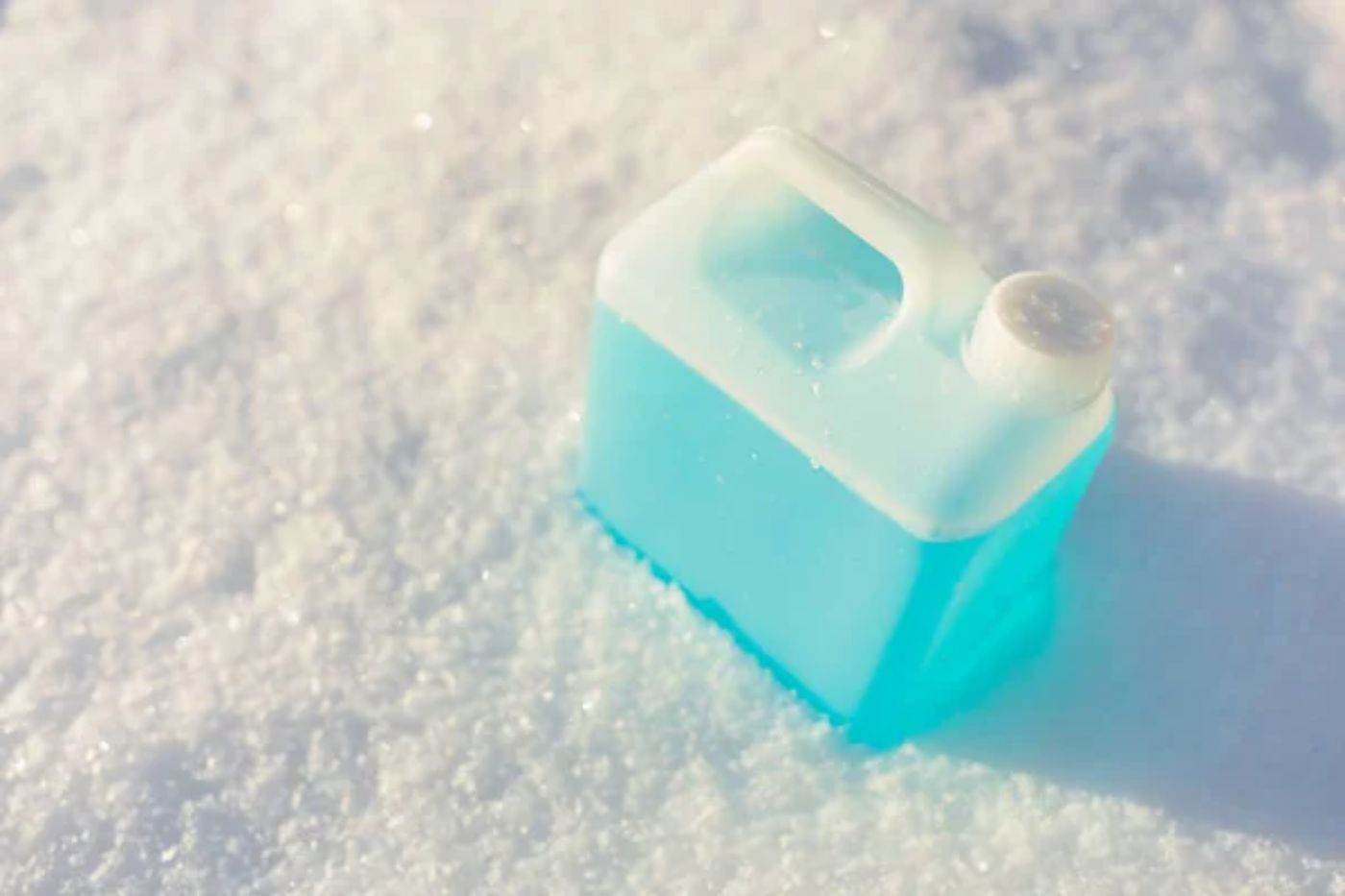
Your boat's previous maintenance history
Neglecting to properly maintain or winterize your boat in the past can have serious consequences, especially when it comes to protecting it from freezing temperatures. In such cases, it's possible that your boat may require a higher amount of antifreeze to ensure it is fully protected.
Failing to take the necessary precautions could result in costly repairs or even irreparable damage to your vessel. Therefore, always prioritize regular maintenance and winterization to keep your boat in top condition and avoid unnecessary expenses down the line.
Did you find the answer to your specific question?
👍 0 👎 0
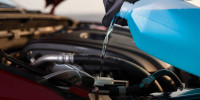
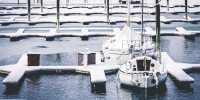
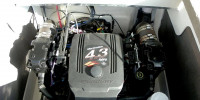

Leave a comment